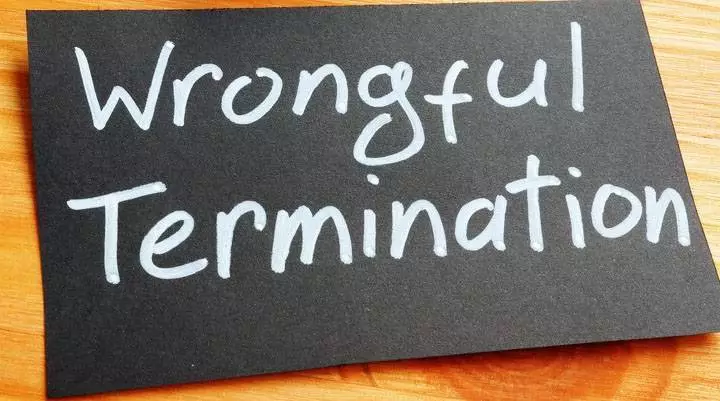Do you recall those movies and series where the protagonist’s boss fires them for some silly reason? That iconic “you’re fired” that follows with an “on what grounds” kind of scene always causes a stir. But you do know that such a scenario does not only happen in a studio somewhere in La-la Land. Employers firing employees without following the proper process occurs in the real world. That is what we call wrongful termination. We will find out what it is, plus some things that might be a shock to you. So you better hold onto your seat.
A Quick Explanation
An employer might suddenly take action and sack someone. The wrongful termination could be due to an illegal reason. Or perhaps in a way that breaches a specific contract. An improper firing may differ from one state to another. In addition to this, there are numerous types of wrongful termination scenarios or claims.
1. Termination without cause
An example of dismissal with no concise cause is when a company lets you go due to poor performance. Heck, some industries might relieve someone because they merely do not like the worker at all. Termination without cause does not involve workplace misconduct.
2. For cause dismissal
This kind of dismissal is the complete opposite of termination without cause. A company will fire you for the most grave of workplace misbehaviors or misconduct. We’re looking at instances of colleague assault, thievery, dishonesty, and so on. IN some states, for cause dismissal does not require a notice of termination or severance pay.
3. Constructive dismissal
Constructive dismissal happens when an employer makes sudden workplace changes for a worker. The employee then decides to resign from work, as these changes might affect their performance and welfare.
4. Other reasons
There might be other reasons why a company or employer might decide to let you go. A dismissal might be due to the following:
- You start a union
- You join a work union
- Reporting about unsafe work conditions
- Whistleblowing about an employer’s misconduct
- Complaining about work-related abuse
- Mentioning illegal activities
- Asserting your rights
But There Is A Catch
You may have in good faith feel that you are the victim of wrongful termination. We won’t blame you for doing so, but there are some misconceptions regarding the matter. Besides your work ethics and performance, there might be a different reason why your employer decided to let you go. Some reasons include the following:
- The company is having trouble with finances
- The company has other internal issues
You have to consider these aspects before you claim that you are the victim of wrongful termination. But if the cause was discriminatory, then you’re on the right track.
Once You Leave The Job
Don’t feel totally powerless once you leave the office for good. Besides having professional assistance, you can do some other actions.
- Gather all the documentation you can regarding your dismissal. Such files and documents will help you later.
- Record specific events, including commendations, payment changes, reprimands, and so much more. Also, keep the time and place of such events.
- Request for a copy of your personnel work file. Copy everything you see in the file. There might be an instance that your employer will counter your dismissal claim. They might tamper with your file. So you have to be precise with what the file has to offer.
Help! I’ve Been Wrongfully Dismissed!
Once you clarify that your employer fired you for a discriminatory reason, then that is when you can take legal action. You can get in touch with a local firm. They will assist you and give you access to the best wrongful termination attorney kansas city has to offer. Such a professional legal worker will do what it takes to get you the compensation you rightfully deserve.
Getting Back On Your Feet
It’s not the end of the world when you lose your job. You have the option to take some steps to keep yourself afloat. After all, the bills do not pay themselves.
1. Collect your previous job’s final compensation
The law mandates an employer to give a worker their last paycheck. So with that in check, you can go ahead to claim that final pay from your former boss.
2. Visit an unemployment outlet
An unemployment agency can help you file for unemployment compensation. The law also mandates such a benefit. You can claim it if the termination’s grounds are not due to misconduct and if the work was only part-time or contractual.
3. Eliminate extra expenditures
We know that your Netflix subscription keeps you entertained. But you must first get rid of it along with some others. Cutting expenses will save you some cash.
Read This Also: How to Hire a Great Chief Marketing Officer
4. Polish your resume
It is paramount that you work your resume up to prepare for your next job application. It should have precise and truthful information only. You don’t want to have issues right at the moment of an interview.

